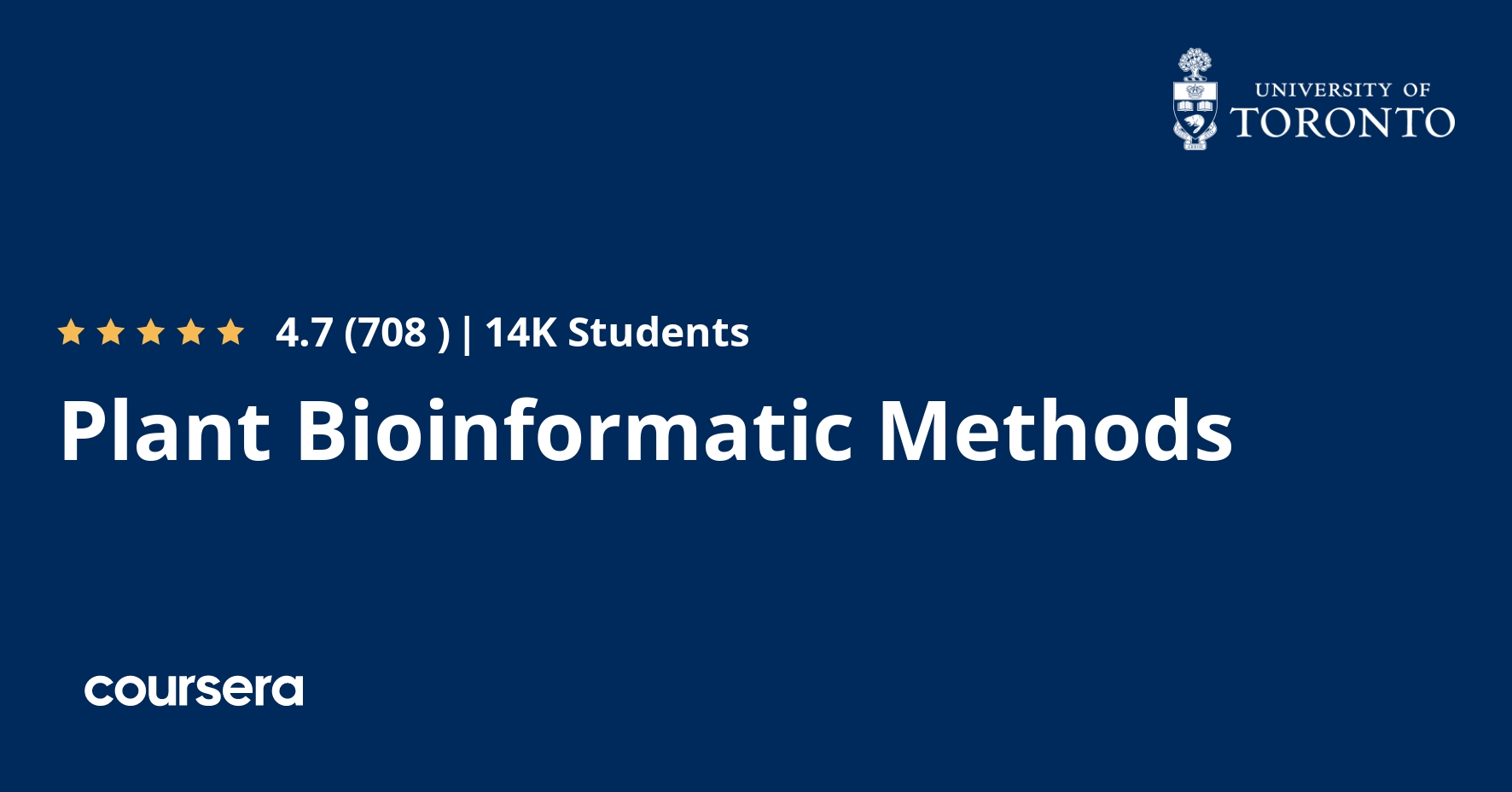Plant Bioinformatic Methods
Introduction
Dive into the world of plant bioinformatic methods with the course “Plant Bioinformatic Methods” offered by the University of Toronto. This course empowers learners to delve into the intricacies of bioinformatics as applied to plant biology. Enroll for free and unlock the tools and techniques essential for analyzing and interpreting biological data in the context of plant sciences.
What You Will Learn in the FREE Plant Bioinformatic Methods Course
“Plant Bioinformatic Methods” provides a comprehensive exploration of bioinformatics methodologies tailored to plant biology. Participants will gain proficiency in analyzing genomic, transcriptomic, and proteomic data to unravel the complexities of plant systems. From sequence analysis to functional annotation, this course equips learners with the skills needed to extract meaningful insights from large-scale biological datasets.
Most Frequently Asked Questions about the FREE Plant Bioinformatic Methods Course
What is the primary focus of the Plant Bioinformatic Methods course?
The primary focus of the course is to familiarize participants with bioinformatic techniques and tools applicable to plant biology research. Participants will explore various bioinformatic methods for analyzing genetic, transcriptomic, and proteomic data, with a specific emphasis on understanding plant systems at the molecular level.
Why should I consider learning Plant Bioinformatic Methods?
Plant bioinformatics plays a crucial role in advancing our understanding of plant biology and facilitating crop improvement efforts. This course offers valuable insights and practical skills for researchers, students, and professionals interested in unraveling the complexities of plant systems through bioinformatic analysis. Whether you’re studying plant genetics, agriculture, or biotechnology, this course provides essential knowledge for harnessing bioinformatics in plant science research.
How long does it take to complete the FREE Plant Bioinformatic Methods course?
The duration of the course varies based on individual learning pace and prior experience in bioinformatics and plant biology. Participants typically complete the course within several weeks, engaging with lectures, tutorials, and hands-on exercises to master bioinformatic methods tailored to plant research applications.
What are my next learning options after completing the FREE Plant Bioinformatic Methods course?
After completing this course, consider exploring advanced topics in systems biology, biotechnology, and computational biology to further enhance your expertise in plant bioinformatics and molecular biology. We recommend exploring the course on Systems Biology and Biotechnology. This course offers insights into integrated approaches for studying biological systems and leveraging biotechnology tools to address complex biological challenges.
Is it worth learning Plant Bioinformatic Methods?
Absolutely! Plant bioinformatics is at the forefront of modern plant science research, enabling researchers to decipher the molecular mechanisms underlying plant growth, development, and adaptation. This course equips you with the knowledge and skills needed to leverage bioinformatics tools and techniques for unraveling the mysteries of plant biology, making it a valuable asset in your journey as a plant scientist or biotechnologist.
What roles or activities demand knowledge of Plant Bioinformatic Methods?
Professionals and researchers in plant biology, agricultural science, biotechnology, and bioinformatics benefit from expertise in plant bioinformatic methods. Roles may include plant biologists, bioinformaticians, crop scientists, molecular biologists, and biotechnologists engaged in plant research, breeding, and biotechnology development.
Will I receive a certificate upon completing the FREE Plant Bioinformatic Methods course?
Upon successful completion of the course, participants will receive a certificate of achievement from the University of Toronto, validating their proficiency in plant bioinformatic methods and data analysis techniques.




There are no reviews yet.